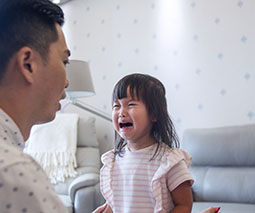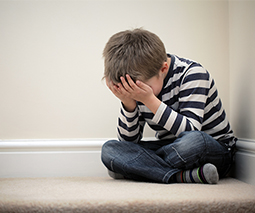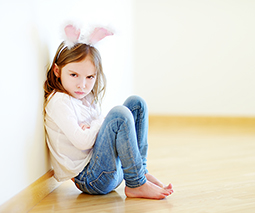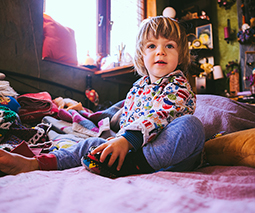“Stop crying!” Better ways to talk to your toddler in the heat of the moment
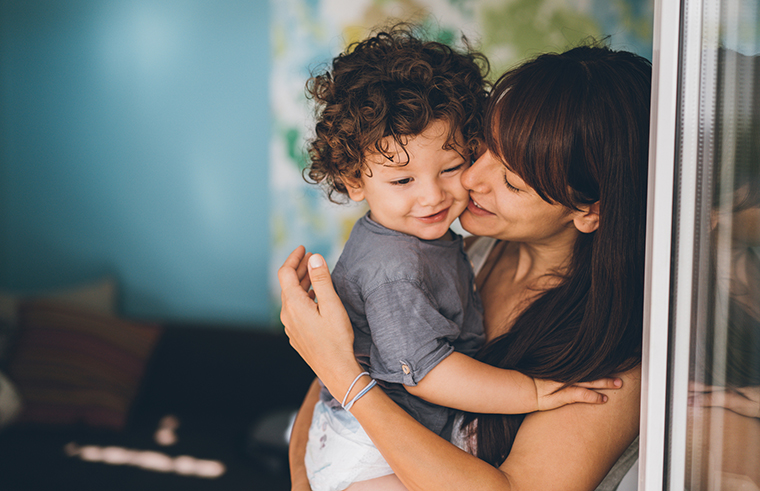
My preschooler has a very defeatist attitude. If he can’t do something, like put his shoes on, or attach the trailer of his favourite truck, he’ll throw in the towel and sigh, “I can’t do it!” while folding his arms and kicking something.
In the past I’ve always said, ‘Yes you can!” or I just get annoyed at him and respond with, “Don’t be like that.”
Then I read something that has changed everything. Instead of saying, “Yes you can!” which only sets our little ones up for more disappointment and feelings of disillusionment when they can’t, we should just say, “Yet”. As in, “You can’t do it yet”. Responding like this gives them hope and also the motivation to keep trying.
Along these lines, here are a few other things we say in the heat of the moment that could easily be flipped to be more positive. Don’t get me wrong, this isn’t a guilt trip, I say most of them too, but I’m learning my preschooler and toddler respond better to me when I use more empathetic and positive language.
Instead of “You’re okay” try “I know it’s owie”
Toddlers can react so emotionally to falling over or scraping their leg. It’s natural then to want to reassure them that they’re okay. But if your little ones are like mine, doing this can sometimes result in them wailing more as they feel the need to communicate with me that they really ARE HURT!
While you don’t want to make a mountain out of a molehill, simply acknowledging it hurts by saying something like,”I know it’s owie” and then slapping a Band-Aid on, can help to defuse their tears.
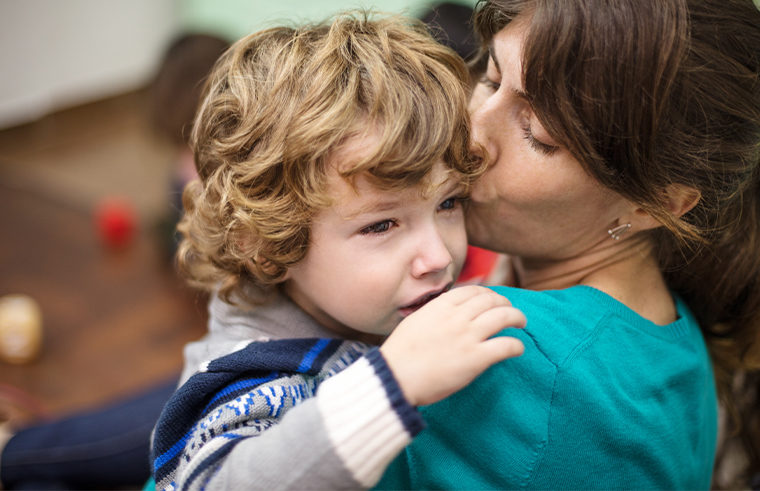
Instead of “Stop crying” try “I know why you are sad”
Oh man, in the heat of the moment, I say this one all the time. I mean, why is my toddler crying over his banana snapping? Is it really worth the waterworks? According to ‘experts’ (I always laugh at that, surely those in the parenting trenches are the real experts! But anyway, I digress) it’s much better to talk through the crying and help our little ones to identify the source.
Try saying, “I know you are sad that your banana snapped. You like it when it’s whole.” What you are doing here is showing your little one that it’s okay to show emotions by crying, instead of instructing them to bury them or dismiss them.
Instead of “Why did you do that?” try “I don’t like you doing that because …”
When my boys do something really silly/annoying/infuriating, like drop flour all over the kitchen floor, I demand my eldest tell me why they did it. I’m usually more aggravated by his answer – “Because we like flour,” for example.
While its’s always good to get to the bottom of certain behaviours so you can avoid it happening again in future – in this case, by teaching my boys that they need to ask before playing with the flour – if we want to teach them why it’s naughty, then perhaps we need to explain it to them. “I don’t like you doing that because it creates a big mess that you will now need to help clean up,” for example.
Of course, sometimes our little ones just think being naughty is fun! Sigh (they will grow out of that, right?).
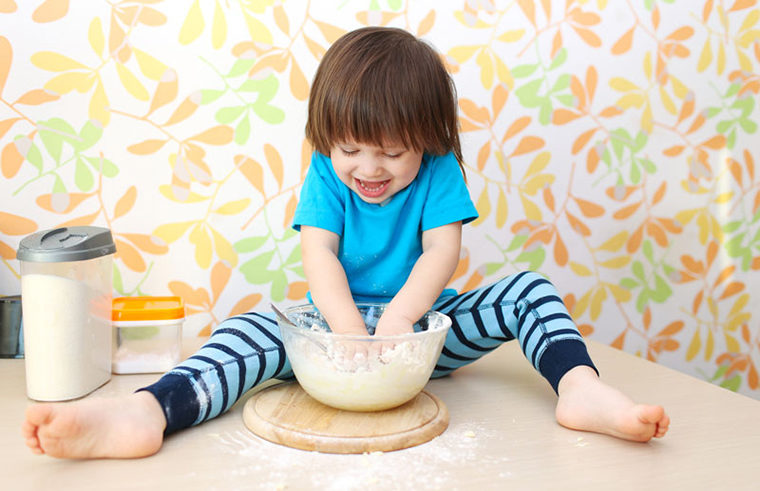
Instead of “You don’t have to be scared” try “You are safe”
Again, along the lines of crying, instead of dismissing our little one’s fears and phobias, experts say it’s better to talk them through it.
They are scared because they feel it and saying, “You don’t need to be scared” only diminishes their experience. A statement like, “You are safe” is more reassuring and will remind them that we’re there to protect them and hear them out when they feel things. For example, “I know the balloon popping made a big noise and it scared you. You are safe. The balloon won’t pop again.”
 Need some more toddler behaviour advice? Our Parent School toddler experts can help. Click to find out more or book a one-on-one session.
Need some more toddler behaviour advice? Our Parent School toddler experts can help. Click to find out more or book a one-on-one session.
